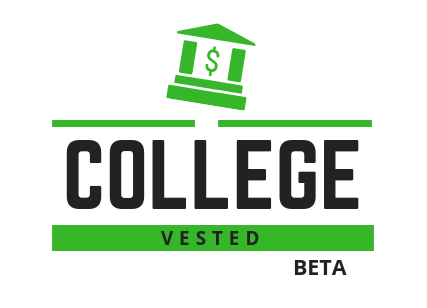
Best Savings Accounts
Written by: Alexandra Blackwell
Four years comes and goes so fast. Before you know it, life catapults you into adulting to the fullest. That means paying all your own expenses: everything from groceries, to a gym membership, to monthly rent payments. Where does all that money come from? Well, the busy summers spent making businessmen their morning cup of joe by day and serving entitled hotel guests their fancy dinners by night, don’t count for nothing. Hopefully you’ve racked up some real bread in a trusted financial service’s savings account. But if not, we have you covered.
Check out our list of the 10 best savings accounts to ensure you don’t live in mom’s basement post-graduation.
10. Bank of America Personal Savings/ Plus Checking

APY: starts at 0.03% but can max out at 0.06%
Initial Deposit: $100
Fees: Overdraft fee of $35 per item (when you spend more than you had available in your account) and may appear on your account statement four times daily.
Perks:
What drew me in? Their Keep The Change Program. It rounds up debit card transactions that pull cash from your checking out and transfers those extra few cents to your savings—that can add up to a Starbucks latte. You’ll spot a free-for-use Bank of America ATM around every corner with 16,300 located nation-wide. And you can expect excellent customer service quality in all 4,300 of their branches.
With Plus Checking, students 24 years and younger enrolled in high school, college, university or vocational programs don’t have to pay the monthly fee. But don’t get too excited: the required initial deposit soars much higher than the usual $100. However, they do have mercy if you show your responsible side. “I recommend Bank of America! I have a savings account with them and they have good rates especially for younger people!” Florida State University sophomore Sanuki Prematilleke said. If you go in with a parent or trusted guardian who already has an account and maybe even a little credit under your belt, the more likely they will give you a good rate.
They also offer easy to use mobile banking and can help protect you from overdraft fees by linking your checking account to your savings.
9. Wells Fargo Personal Savings

APY: low 0.01%; but opportunity to increase this rate as your balance increases—rewards for making that bread.
Initial Deposit: $25
Fees: $5 monthly fee waived if you keep at least $300 in your account every day
Perks:
With excellent and reliable customer service, 13,000 free ATMS and 5,700 branches nation-wide you can actually talk to a real person about that fourth count of fraud on your account. “I’ve had accounts at Vystar Credit Union (local to North Florida), Ally, and Wells Fargo… as a college student Wells Fargo is much more convenient because they have a much wider range of services and locations to visit with any questions I have,” University of South Carolina junior Max Nelson said. For the student who’s interested in learning the art of finance-mastery: “I opened my Wells Fargo account just before college when I started working so I’d have a physical bank to go to and learn about managing my money,” Florida State University junior Moira Conley said. And for all those adventurers who see Study Abroad programs in their future—“Wells Fargo is great for getting foreign currency. It’s pretty easy and a fairly fast process,” Florida State University junior Moira Conley said.
Don’t forget to boost savings with auto-transfer of $1 from checking to savings—make saving a healthy habit rather than an obligation.
8. Suntrust Essential Savings

APY: 0.01% —stays the same no matter how much you save
Initial Deposit: $0
Fees: No monthly fee to keep your account open
Perks: Sign up for a paperless statement and avoid a $3 monthly fee for IRL statements. If you spend more than you have, don’t fear an overdraft fee because the limit does not exist (please get the Mean Girls reference). Suntrust offers the option for automatic transfers from checking to savings to encourage healthy saving habits. “Suntrust offers the best secured credit card that I’ve seen on the market. You pledge your own money and they secure those funds in a savings account and they give you a credit line in the amount of what you’ve allowed them to secure. Personally, I keep $500 in the savings account tied to my checking for over draft, $500 in the account at the credit union where my car is financed and the rest of my money is in an online money market account,” Synovus bank employee and FSU alum Belle Robinson said. Personally, I have never had a negative experience with an employee at a branch location or over the phone at 1-800-SUNTRUST. Having a checking account open with Suntrust, I know things happen. I’ve had fraud on my account for what feels like twenty different things. Even though that stresses me out to no end, I just run to my banker guy named Thomas and he fixes everything.
7. USAA Savings

APY: 0.09% for accounts below $1000 and maxes out at 0.15%
Initial Deposit: $25
Fee: No monthly fees
Perks: With no minimum balance requirement, you don’t have to worry about running low on your Depop sales. And with USAA Savings you can make sure your account never hits zero again with a money manager tool that tracks your spending. You can even categorize different transactions so you can see how much you spend for what, which comes in super helpful when it comes time to crafting your own monthly budget. “USAA is my favorite because they really put customer service first. They are also an insurance company and have been phenomenal at taking care of my family,” Conley said. USAA makes the saving experience a YOU experience, turning opening a savings account into the finance class you never had the guts to take.
6. HSBC Direct Savings Account

APY: 2.22%
Initial Deposit: $1
Fees: No monthly minimum, generally no fees
Perks:
You’ll log in to your HSBC account online and have access to 24/7 customer service through live chat or over the phone. If you want, you can even download their personalized app to track your spending.
Even though this account offers some of the best deals, stay aware of the delay you’ll have if you need money right now. With a very limited amount of branches and ATMs, you’ll want to keep some cash in your pocket (or in your at-home piggy bank) for any emergencies. “If you need to be able to get into them (those funds) in case of an emergency, you’re not going to want to go the online route because it can take up to 3 days to get that money,” Robinson said. Another catch to the great deal: in order to open a savings account with HSBC, you need to already have a HSBC checking account. Slightly inconvenient, but I think it’s worth it for the hefty APY, don’t you?
5. Alliant Credit Union High-Rate Savings

APY: 2.00%
Initial Deposit: $100
Fees: Skip paper statements to avoid a $1 monthly fee, but even if you opt for paper, it’s only an extra dollar you’ll take out of your fun-money allowance per month.
Perks:
Alliant offers lots of unique perks, uncommon to most banks. “As a broke college student just trying to have some emergency funds, your best bet at a savings account would be at a credit union. They typically require smaller opening deposits and have a lower minimum balance thresh hold than a bank,” Robinson said. You can even open up to 19 separate savings accounts if you want to make sure you have money for next year’s spring break trip and still have some for the shiny Jeep Wrangler you’ve been saving for basically your whole life. They even provide parents with the option to open an account just to teach their kids about money management. If you need a little lesson, visit Alliant’s website and set one up with your mom, dad or legal guardian. Even though Alliant operates mostly online, they do have about 80,000 free ATMs made for your use, so you don’t have to worry about keeping enough money in your piggy bank for when you get a flat tire out of the blue.
4. Ally

APY: 2.22% regardless of your “almost-broke” balance; and this interest is compounded daily meaning you’ll make more than with the usual account that compounds your balance monthly
Initial Deposit: None required!
Fees: No monthly fee
Perks:
You can transfer money from another bank or another Ally bank account you already have open. Since Ally does not allow you a way to deposit cash, this makes the process a little less frustrating. You can link your paycheck through direct deposit, use Ally’s Echeck Deposit or just send checks via wire or email. Withdraw your cash with access to 43,000 ATMs so you don’t have to painfully wait for them to mail you your money, or request an online funds transfer for immediate action. “Ally is an online savings account, has no fees and the interest rate has continued to go up since I signed up with them. It’s pretty rad!” FSU alum Lorrelle Jock-Fernandez said. And with 24/7 support, someone will always make themselves available for a smooth transaction process.
3. Synchrony High Yield Savings Account

APY: 2.20%
Initial Deposit: None
Fees: Nada
Perks:
Synchrony only offers the option of opening an online savings account. They do not follow most traditional bank molds since they have no physical locations or ATM’s. However, you can’t beat the benefits here, aka no initial deposit or fees that will seriously add up. And even though Synchrony-specific ATMs don’t exist, other ATMs do accept the option Synchrony ATM card—just look for the Plus or Accel logos. The best part about using another banks ATM and probably getting charged for it? Synchrony does you the service of refunding you $5 every month for these transactions. Convenient for a college student who doesn’t even have the time to travel to a branch, Synchrony provides you everything you need to know on your phone and come on, name one college student who doesn’t have that glued to their hand 24/7.
2. American Express (Amex) Personal Savings

APY: 2.10%
Initial Deposit: None
Fees: No monthly fees
Perks: With Amex personal savings, you’ll never have to worry about maintaining a certain number in your account ever again. Since Amex doesn’t offer a checking account option, they make it easy for you to link another bank account. That means, you don’t have to go through the hassle of closing that account and opening a new one—score. In order to deposit cash, you’ll link your checking account or have to send a check to their office in Salt Lake City. Take your pick. They allow six withdraws a month max, making it easy to prioritize saving. “I use Amex Personal Savings. You do have to apply and be accepted, but no mandatory minimums or monthly fees. Similar to Ally, the interest rates have continued to go up as I’ve used them. (Up to 2.1% right now),” University of Indiana and Florida State alum Matt Cooksey said. If your focus pinpoints maximum savings, Amex offers all you need.
1. Marcus by Goldman Sachs

APY: 2.25% — whaaaaatt?
Initial Deposit: $1
Fees: Never will you ever see one stinkin’ transaction fee
Perks:
Your account links directly to your checking account. Opt for a certain amount of your paycheck or grandma’s yearly birthday contribution to go straight to your savings so you don’t waste it on your weekly Trader Joe’s trip. Because Marcus doesn’t (yet) have an app, you can check up on your finances online at their website or call a friendly banker. “I just started an account with Marcus. It’s run through Goldman Sachs and is completely online, but it has a crazy high APY (2.25%, compared to say Chase or Wells Fargo at 0.04%). That’s really what drew me to it. Check it out!” Notre Dame alum Brendan Ward said. A representative will reply to any questions you send via live chat on their website. “Setting up the account was very easy and after logging in it seems very easy to connect with a live representative 24/7,” Ward said. Its APY, $1 initial deposit and fee-free promise make Marcus by Goldman Sachs the best choice if you want a simple savings boost.

Need More Money for Your Savings?
College serves as a time for growth as the first time most students must financially fend for themselves and try to stay frugal while at it. This can prove a harrowing feat though, as we struggle to pay for expensive textbooks, keep up with rent and not starve.
Savings Account Articles
Read our latest articles on savings accounts below.
